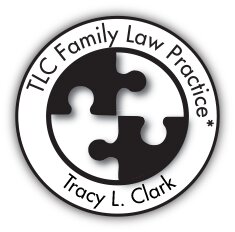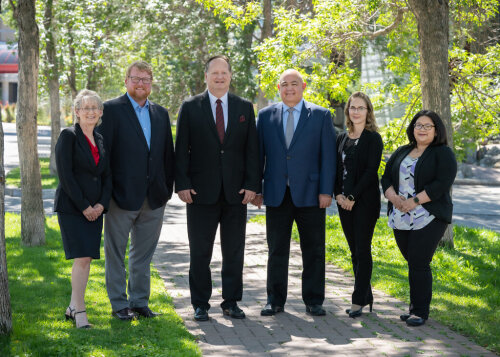Best Child Abuse Lawyers in Prince George
Share your needs with us, get contacted by law firms.
Free. Takes 2 min.
Free Guide to Hiring a Family Lawyer
List of the best lawyers in Prince George, Canada
About Child Abuse Law in Prince George, Canada
Child abuse is a serious issue that affects the well-being and safety of children in Prince George, Canada, as well as across the country. Child abuse can take various forms, including physical abuse, emotional maltreatment, sexual abuse, and neglect. In Prince George, laws are in place to protect children and ensure their rights are upheld. The legal system focuses on the best interests of the child, aiming to provide a safe environment while holding offenders accountable. Community awareness and legal frameworks work hand-in-hand to address and mitigate incidents of child abuse effectively.
Why You May Need a Lawyer
There are several situations where individuals may need legal assistance regarding child abuse in Prince George. Parents or guardians may require legal help if they are falsely accused of abuse and need to clear their name. Victims and their families might seek legal representation to ensure their rights are protected and to prosecute the perpetrator. Professionals who work with children, such as teachers or healthcare providers, might need guidance on legal obligations regarding mandatory reporting of suspected abuse. Additionally, understanding the complexities of family law and custody issues may require expert legal advice to navigate effectively.
Local Laws Overview
Laws related to child abuse in Prince George are primarily governed by provincial legislation in British Columbia, as well as relevant federal laws. The Child, Family and Community Service Act (CFCSA) outlines the responsibilities of the Ministry of Children and Family Development (MCFD) and sets out procedures for handling cases of child abuse. Under this act, there's a legal obligation for anyone who suspects a child needs protection to report it to the MCFD. The Criminal Code of Canada also addresses offenses relating to child abuse, setting penalties for various forms of abuse. It is crucial to be familiar with these laws to understand rights and obligations when dealing with suspected or confirmed cases of child abuse.
Frequently Asked Questions
What constitutes child abuse?
Child abuse includes physical harm, sexual exploitation, emotional maltreatment, and neglect, resulting in potential or actual harm to a child's health and well-being.
Who is obligated to report suspected child abuse?
In Prince George, any person who reasonably believes that a child is in need of protection must report the situation to child welfare authorities. This includes professionals such as teachers, doctors, and social workers, as well as members of the public.
What should I do if I suspect a child is being abused?
If you suspect child abuse, promptly report your concerns to the local Ministry of Children and Family Development office or the police. Your report could be vital in ensuring the child's safety.
What happens after a report is made to authorities?
Once a report is made, child welfare workers assess the situation. If a child is found to be at risk, they may intervene to protect the child, which could involve removing the child from their home or providing family support services.
Can I remain anonymous when I report child abuse?
Yes, you can remain anonymous when reporting suspected child abuse. However, providing your contact information could be helpful for authorities if they need more information to ensure the child's safety.
What legal rights do children have in these cases?
Children have the right to protection from harm, safe living conditions, and to have their voices heard in proceedings that affect them. Legal and child welfare systems aim to prioritize the best interests of the child.
What are the potential legal consequences for perpetrators of child abuse?
Perpetrators of child abuse may face criminal charges under the Criminal Code of Canada. Consequences can include fines, imprisonment, and court-ordered rehabilitation programs designed to prevent reoffending.
How can a lawyer help in cases of child abuse?
A lawyer can provide legal advice, represent victims or accused individuals in court, assist with filing necessary legal documents, and ensure that the rights of the child and family members are protected throughout the process.
Is there support available for victims of child abuse?
Yes, various non-profit organizations and government programs offer support services like counseling, legal assistance, and temporary housing for victims and their families to aid in recovery and healing.
Can one challenge decisions made by child welfare authorities?
Yes, affected parties can seek legal recourse and appeal decisions made by child welfare authorities. Consulting a lawyer who specializes in family law can help navigate this process.
Additional Resources
The Ministry of Children and Family Development is a pivotal resource for reporting and managing cases of child abuse. Local organizations like the Child and Youth Advocacy Centre provide tailored support to affected children. Additionally, the Canadian Centre for Child Protection offers educational resources and assistance concerning child safety and abuse prevention.
Next Steps
If you believe you need legal assistance concerning a case of child abuse in Prince George, start by reaching out to a qualified family law lawyer who specializes in child welfare issues. It may also be beneficial to contact local support organizations for immediate assistance and guidance. Consider gathering all relevant documentation, such as medical records or communication logs, which may be necessary for legal proceedings. Remember, taking the initiative to seek legal advice is crucial in protecting both the rights and welfare of the child involved.
Lawzana helps you find the best lawyers and law firms in Prince George through a curated and pre-screened list of qualified legal professionals. Our platform offers rankings and detailed profiles of attorneys and law firms, allowing you to compare based on practice areas, including Child Abuse, experience, and client feedback.
Each profile includes a description of the firm's areas of practice, client reviews, team members and partners, year of establishment, spoken languages, office locations, contact information, social media presence, and any published articles or resources. Most firms on our platform speak English and are experienced in both local and international legal matters.
Get a quote from top-rated law firms in Prince George, Canada — quickly, securely, and without unnecessary hassle.
Disclaimer:
The information provided on this page is for general informational purposes only and does not constitute legal advice. While we strive to ensure the accuracy and relevance of the content, legal information may change over time, and interpretations of the law can vary. You should always consult with a qualified legal professional for advice specific to your situation.
We disclaim all liability for actions taken or not taken based on the content of this page. If you believe any information is incorrect or outdated, please contact us, and we will review and update it where appropriate.









